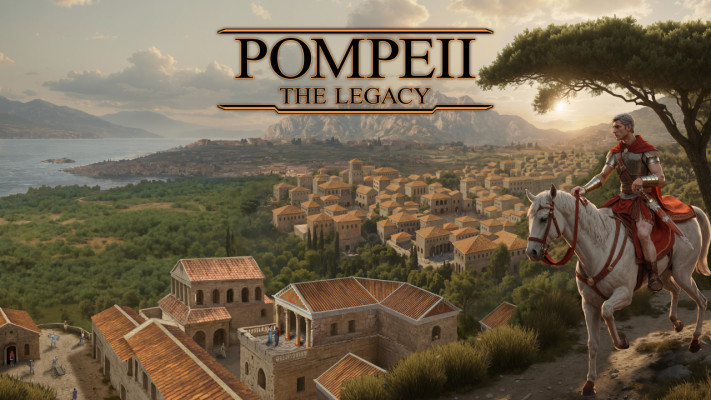Rebuilding Pompeii: Siscia Games Unveils Insights into Pompeii: The Legacy
quarta, 11 de setembro de 2024 12h 03min

Pompeii: The Legacy is a unique city-building game developed by Siscia Games, set in the Roman Empire with a focus on the legendary city of Pompeii. The game takes place 20 years after the catastrophic eruption of Mount Vesuvius in 79 AD, challenging players to rebuild Pompeii from its ashes. The official Steam page for the game was launched on September 2, with its release planned for 2025. In an interview, the studio shared insights into the game's creation and the challenges players will face.
Zeljko Kos, solo developer at Siscia Games, explained that while the game is based on a historical context, players are not required to rebuild Pompeii exactly as it was. "Players will construct a new city on the ruins of Pompeii. The story begins with Emperor Trajan sending the player to rebuild Pompeii around 100 AD. The premise is fictional, but the broader historical context of the Roman Empire will have a real impact on the player’s experience," Kos shared. His research involved a wide range of literature, documentary films, and fictional works about Pompeii and the Roman Empire.
The challenges extend beyond simple reconstruction. According to Kos, players will face evolving imperial demands over time. "Early on, imperial demands are reasonable, like increasing trade taxes or supplying soldiers. But under Emperor Caracalla, these demands become more irrational and detrimental to the player," Kos explained. Balancing these challenges will be crucial, as failure to meet them could result in a loss of social standing.
Another central aspect of the game is the integration of Roman social classes, adding depth to the experience. "The game includes social classes like slaves, plebeians, and patricians, all in constant tension. Players follow their family over 200 years as they rise in Roman society," Kos said. This progression happens as the family gains perks, like trade skills, and receives privileges from the emperor.
As for the design inspirations, Kos highlighted his visits to Roman structures such as the Arena in Pula, Croatia, and his fascination with Pompeii before the eruption. "Pompeii was chosen because there hasn’t been a large-scale strategy or city-building game centered on it. Historical events, such as the rise and fall of emperors, revolts, and wars, will affect the gameplay, like a rebellion in Cyprus disrupting trade with Judea," Kos concluded.



